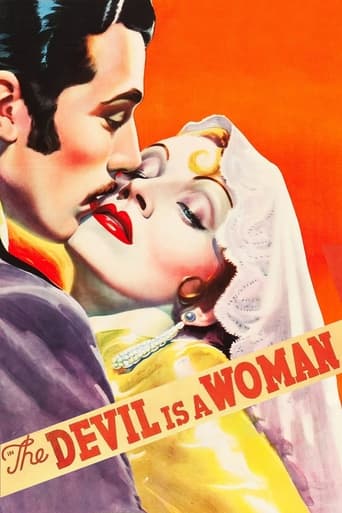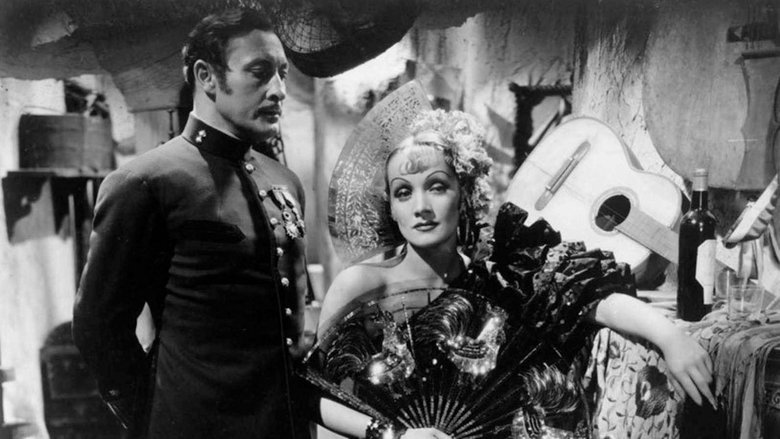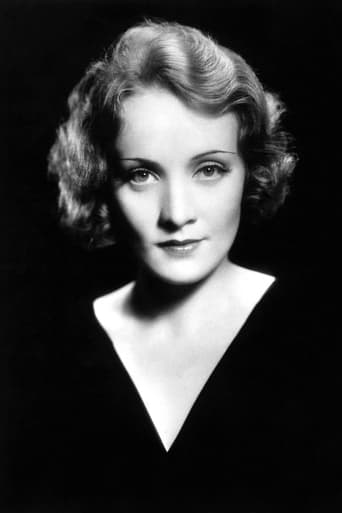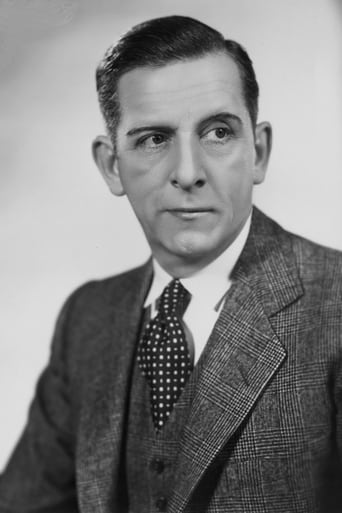

The Devil Is a Woman (1935)
In the carnival in Spain in the beginning of the Twentieth Century, the exiled republican Antonio Galvan comes from Paris masquerade to enjoy the party and visit his friend Capt. Don Pasqual 'Pasqualito' Costelar. However, he flirts with the mysterious Concha Perez and they schedule to meet each other later. When Antonio meets Pasqualito, his old friend discloses his frustrated relationship with the promiscuous Concha and her greedy mother and how his life was ruined by his obsession for the beautiful demimondaine. Pasqualito makes Antonio promise that he would not see Concha. However, when Antonio meets Concha, she seduces him and the long friendship between Antonio and Pasqualito is disrupted
Watch Trailer
Cast


Reviews
Hollywood had a shortage of balloons, streamers and bags of confetti after Josef Von Sternberg used tons of it for this, his seventh and last movie with the exquisite Marlene Dietrich. As overstuffed as a piñata, this extremely elaborate melodrama tells the story of a she-devil who uses men like toilet paper and discards them just as fast. She's the toast of Spain, an entertainer so consumed with the need to use men that she drives them mad with passion, jealousy and revenge. In one of his few non-horror lead roles, Lionel Atwill is her most brutally abused lover, used by her financially and emotionally to the point where he turns homicidal.Even more dangerous than Carmen, Dietrich is obviously enjoying playing the chicanery of this extremely evil woman. Cesar Romero is the other object of her obsessions, warned by Atwill and unheeding his advice. Of course, Atwill has his own agenda and in the end, everybody's lives are on the verge of being ruined. Alison Skipworth is funny as Dietrich's overly dressed matronly mother, with Edward Everett Horton as the head of the law enforcement during a Mardi-Gras like street fair, also under Dietrich's spell.As entertainment, it's pleasing to the eye and totally outrageous; As a moral lesson, it is a valuable tale of the wages of sin, but as art, it is a violation to that famous saying, "Less is More", its costumes, sets and props more camp than culture, more stylish than substance. Dietrich is still lovely in her exotic costumes and make-up, beautifully photographed but suffering a story where the characters don't get any sympathy, only pity, making it over Freudian and rather high brow.
The legend is correct; Dietrich never appeared quite so incredibly beautiful as she does in this film. As ever, the star of the show is her face, made up and lit to perfection and effortlessly dominating every shot. Sternberg floats this face amidst a surreal, slightly out of focus, backdrop of carnival streamers and dark clothing which brings to mind the claustrophobic fantasy of 'The Red Empress'.What a pity that all this (somewhat excessive!) cinematography is wasted on such paper-thin characterisation and melodramatic plot. Atwill and Romero play their stock roles adequately enough and resist the temptation to ham it up while Dietrich does her usual 'scene stealing via the eyes' routine. However her character is more caricature than three dimensional human being and you are left half wishing that Atwill had shot her instead of firing into the air.Sternberg was obviously obsessed with Dietrich and devoted himself to displaying her as the most sublimely beautiful representation of womanhood that he could manage. Looking this wonderful, she ought to have broken the hearts of every man and woman in the audience and with a decent plot, a more believable character and less cluttered cinematography then it could have happened. What a waste!
I'm not too crazy about the storyline. She played Concha Perez, a Spanish woman, who is torn among men. Men fall easily in love with her beauty. Marlene Dietrich does a fantastic job with a weak script. I never bought the film set in Seville, Spain. It's too far fetched with the cast and out of the actors league. Only Cesar Romero fits into his role as one of the possible suitors. Alison Skipworth plays Marlene's character, Concha's mother. Personally, I would have loved to have seen more of Señora Perez. Alison Skipworth was one of the best female character actresses in comedy and drama. This 1935 film is really a great collaboration between Josef Von Sternberg and Marlene Dietrich in her vehicle. Marlene Dietrich was a star, an original. This film does boast her talents but sadly the film is overshadowed by the weakness of trying to being something and somewhere it doesn't fit right like Spain. If the director and writer had rewritten and revised the setting because the cast like Dietrich, Skipworth, and others don't seem to fit into the scenery, it brings the film down. But still, it's a short film in comparison to today's films and it's just worth watching great actors at play.
"The Devil is a Woman" marks the end of the celebrated collaboration between Dietrich and von Sternberg and -- if rumor be true and the evidence of this film does tend to bear it out -- it came not a moment too soon for either one. As cold-hearted vamp Concha Perez, Dietrich spends a great deal of screen time pouting, posturing and being photogenically evil, while working her wiles on the likes of Lionel Atwill and Cesar Romero. But there's no heat in it, really; when Dietrich isn't acting mildly amused she appears to be mildly bored. Maybe she's thinking about the next costume change, which is perhaps understandable since she changes costumes about 2 million times during the course of this 75 minute movie. And what costumes they are! Like something out of a drag queen's fever dream. Being Dietrich, of course, she wears them beautifully and director von Sternberg makes sure she is photographed to a fare-thee-well while she's enswathed in them. But costumes and a star and beautiful cinematography (also credited, in part, to von Sternberg) really isn't quite enough to make this 1935 flick fly. John dos Passos is credited with writing the screenplay and it isn't much more than an excuse for Marlene to play the clotheshorse and blow smoke in a lot of mens' faces. This Woman, unfortunately, isn't the Devil; just a minor imp with a wardrobe the size of a Hollywood backlot.




